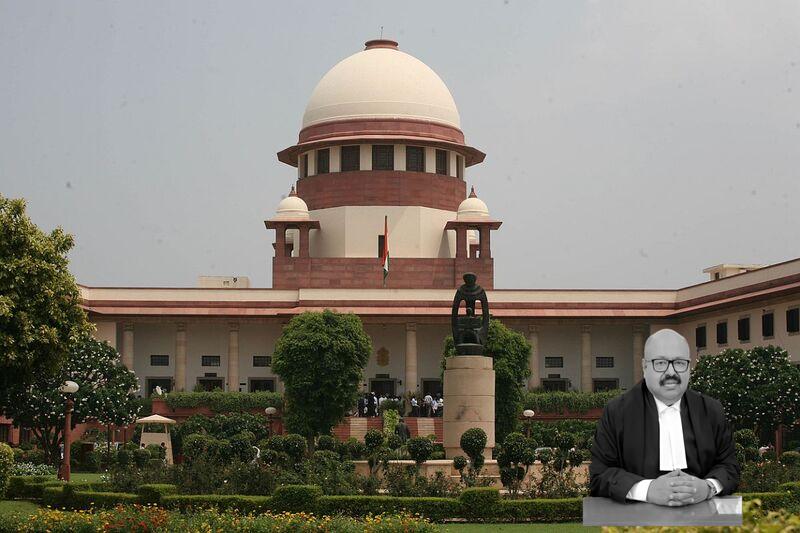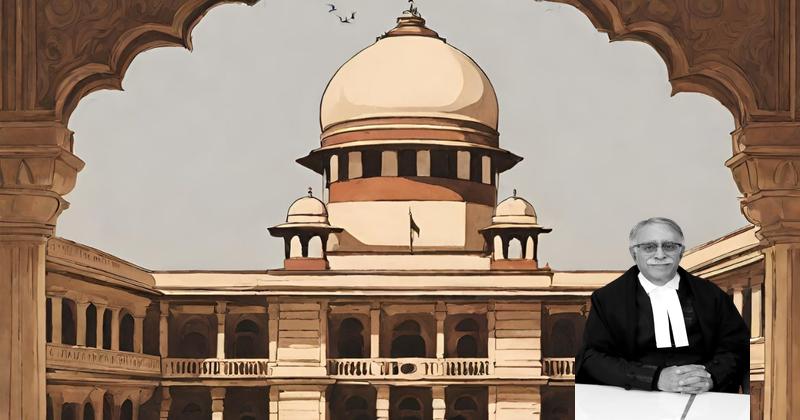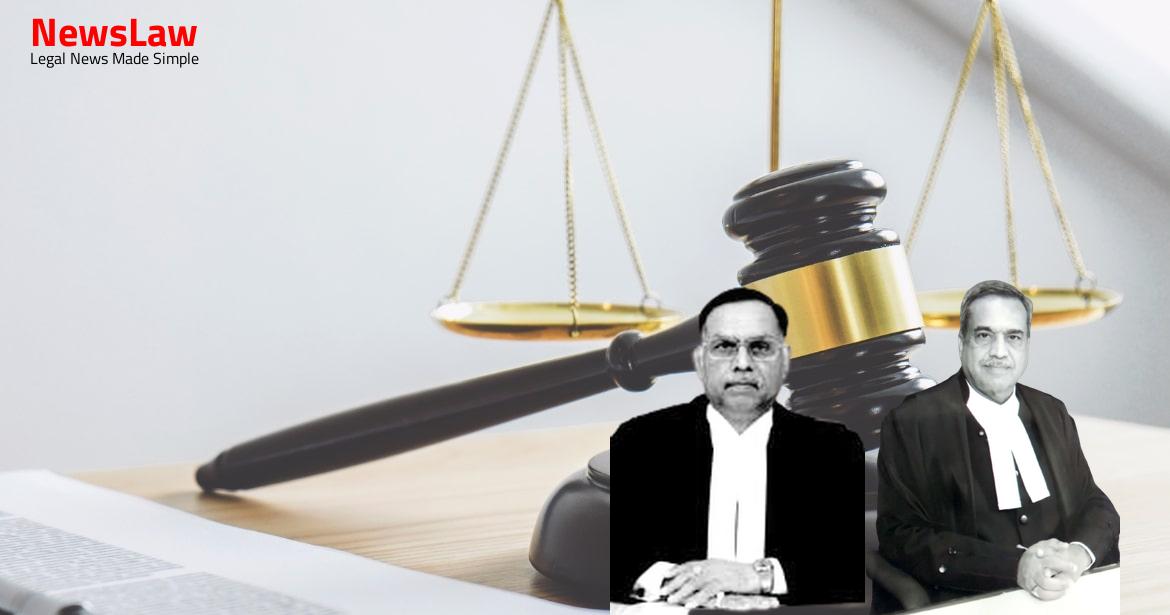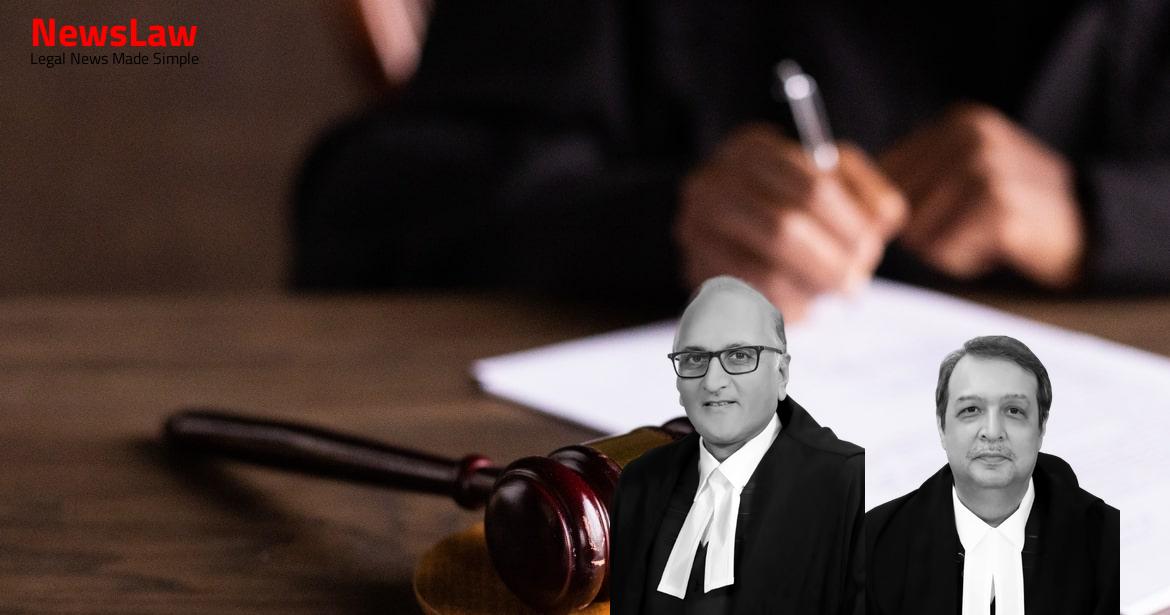This appeal at the instance of the convict-appellant impugned a judgment of the High Court of Chhattisgarh passed in Criminal Appeal No.605 of 2005 dated 20 April 2010, whereby the judgment of conviction under Section 302 of Indian Penal Code, 1860 and order of sentence dated 4 July 2005 passed by the Additional Sessions Judge, Baikunthpur, District Koriya (Chhattisgarh) in Sessions Trial No of 2004 was upheld. 4.2 The other witnesses, for instance, Sumitra – PW4, is recorded to be “guessing” about the convict-appellant being pregnant; Kuwarobai – PW8 refused that she ever saw the convict-appellant pregnant as also that she would use a ‘chadar’ to hide her pregnancy. Divya Rani Tigga – PW11 regarding the signs of recent delivery on the person of the convict-appellant found the following circumstances to have been proved: – a) The accused was living in the village alone as her husband deserted her. The High Court, in the judgment impugned before us, taking note of the testimony of PW11, who deposed that she had, upon examination, found the convict-appellant to have delivered a child and that the deceased had suffered injuries, convicted the accused. In Geeta Devi (supra), the Court found it fit to remand the matter to the High Court for consideration afresh, but in the present case, such course will not be prudent given that this appeal dates back to the year 2010. Rambaran Singh – PW3, who was informed by PW2 of the dead body of a child lying in the dabri, admits having no knowledge as to whom the child belonged to. Rambai – PW7 denies any knowledge of the accused being pregnant but only adds that the accused’s body looked as though she had just delivered a child. Further, what must be considered is whether the convict- appellant has no right of privacy of not disclosing the prosecution or the Court as to what happened to her child which she was carrying in her womb, particularly when the prosecution failed to discharge the initial burden and onus of establishing the deceased, in any manner to be related to the accused? It is also protected by numerous international and regional human rights treaties, including the Universal Declaration of Human Rights, the International Covenant on Civil and Political Rights, and many more. The ability of an individual to make choices lies at the core of the human personality. The inviolable nature of the human personality is manifested in the ability to make decisions on matters intimate to human life. The integrity of the body and the sanctity of the mind can exist on the foundation that each individual possesses an inalienable ability and right to preserve a private space in which the human personality can develop.
Privacy constitutes the foundation of all liberty because it is in privacy that the individual can decide how liberty is best exercised. The ability of the individual to protect a zone of privacy enables the realisation of the full value of life and liberty. Privacy is the ultimate expression of the sanctity of the individual. … The choice of a partner whether within or outside marriage lies within the exclusive domain of each individual. , observed that the statutory right of a woman to consent or not, to a termination of pregnancy in accordance with the Medical Termination of Pregnancy Act, 1971 is deduced from a woman’s right to privacy, dignity and bodily integrity. However, in case of an unwanted or incidental pregnancy, the burden invariably falls on the pregnant woman affecting her mental and physical health.
Such a view being taken, i.e., thrusting upon a woman the guilt of having killed a child without any proper evidence, simply because she was living alone in the village, thereby connecting with one another two unrelated aspects; reinforces the cultural stereotypes and gendered identities which this Court has explicitly warned against. 34.1 The object, evident from the Section itself, is to enable the accused to themselves explain any circumstances appearing in the evidence against them. 34.9 Such a statement, as not on oath, does not qualify as a piece of evidence under Section 3 of the Indian Evidence Act, 1872; however, the inculpatory aspect as may be borne from the statement may be used to lend credence to the case of the prosecution.
34.11 The Court is obligated to put, in the form of questions, all incriminating circumstances to the accused so as to give him an opportunity to articulate his defence. State of Gujarat this Court observed that the courts ought to have a conscientious approach in a case based on circumstantial evidence, and conviction ought to be recorded only in cases where all the links of the chain are complete, pointing only to the guilt of the accused and none else, also eliminating the element of his innocence. In Sharad Birdhichand Sarda (supra), while discussing the effect of non-explanation, this Court observed that the absence of explanation or a false explanation will amount to an additional link to complete the chain provided the following essential conditions must be satisfied, that is to say, various links in the chain of evidence led by the prosecution have been satisfactorily proved; it should only point to the guilt of the accused with reasonable definiteness, and proximity of the circumstance with the time and situation.



